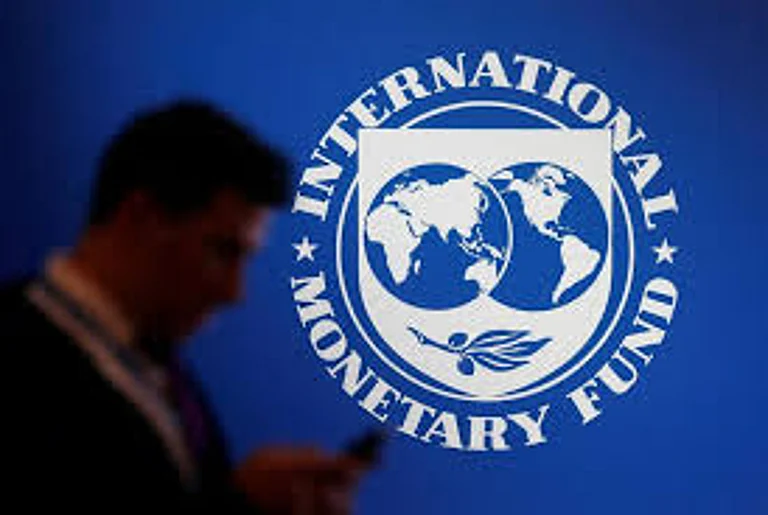Kishor Patil can’t help but gush over Zindagi Na Milegi Dobara, the 2011 Bollywood flick about three friends who live life to the fullest. “The pinnacle of the movie is the bull run [scene]. It is sometimes very important to just take the plunge. If you believe in yourself, you will not only come out victorious but you will have stronger determination and confidence in your capabilities,” says the managing director of Pune-based IT company KPIT Technologies.
It’s easy to see why the 51-year-old identifies with that scene. Over 20 years ago, Patil and Ravi Pandit, now chairman of KPIT Technologies, took a bold plunge when they moved away from their chartered accountancy backgrounds to start an IT services business. Over the years, they managed to scale it up to a multi-million dollar company, aided along the way by carefully thought-out acquisitions.
Earlier this month, KPIT Cummins Infosystems went in for a makeover. The company dropped Cummins from its name, adopted a new logo and rechristened itself as KPIT Technologies to reflect the upcoming changes in its business model. While Cummins continues to be its top client and one of its strategic partners, the name change is more reflective of how the company has grown beyond its key customer, with plans to grow its technology business — which develops patented products and solutions — to bring in half of its revenues over the next couple of years.
The technology business currently accounts for a third of revenues, while business IT accounts for the balance. KPIT has invested in developing products and solutions in embedded software and auto electronics. The move is also to consolidate operations across its acquired companies and bring more consistency across its offerings to clients as a single brand as it sets its eyes on a higher target. “By 2017, we hope to become a $1-billion company by revenues, and we wanted a new identity that would reflect our bold and aggressive thinking,” says Patil.
Early on in its journey, its 2002 acquisition of the IT arm of Cummins Inc, which now holds around 6%, defined the company’s roadmap. Through this journey, KPIT realised that while competing with larger companies on deals is a challenge by itself, taking them on in areas where they have built a strong foothold, such as banking and financial services or healthcare, was even tougher. It, therefore, decided to focus on three verticals where it could carve a niche: automotive and transportation, manufacturing and energy and utilities. These three verticals today bring in 86% of overall revenues. (see: Stable fare) The company sold its financial services business, which accounted for about 3-4% of revenues, to Infrasoft Technologies in 2011 to focus on its core verticals.
Inorganic push
Since 2002, KPIT has relied on acquisitions to fill the gaps in its services offerings and build competencies in automotive electronics, engineering design services and enterprise resource planning (ERP). “In the fast-changing world of technology, time to market is critical and companies can’t develop capabilities organically at all times. KPIT has not only filled gaps in its offerings but also managed to stay ahead in its chosen area of expertise with the help of these acquisitions,” points out Amit Bhatiani, partner at CX Partners, a private equity firm that picked up a stake in the company in 2012.
For instance, in 2009, the company took over US-based Sparta Consulting, which specialises in SAP software-led consulting, for $38 million, to strengthen its SAP practice, which now brings in nearly 30% of revenues. Since 2002, the company has spent over $85 million on 10 acquisitions to strengthen its portfolio (see: Acquired strength), with the latest coming in 2011, when it picked up a 50% stake for ₹103 crore in Mumbai-based Systime (which provides Oracle consulting services for manufacturing and energy and utilities companies) to expand its ERP consulting and services business.
These acquisitions have helped the company sustain a strong growth momentum as well. Vishal Agarwal, analyst with Jefferies India, mentions in his report that KPIT’s revenues have grown over 41% in dollar terms over the past decade. While acquiring companies is one thing, scaling them up is a whole different ballgame, as many acquisitions tend to falter at the integration stage. But KPIT has successfully managed to scale up its revenues in the companies it has taken over.
For instance, it has scaled up revenues of Sparta Consulting from $25 million at the time of acquisition to $72 million in 2013. CG Smith, a US-based company that specialises in auto electronics, saw its revenues grow from $6.25 million in 2006, when it was acquired, to $45 million in 2013.
Similarly, the company managed to scale up revenues of Cummins Infotech from a modest $1 million in 2002 to $66 million in 2013. More importantly, over the years, the company managed to reduce its dependence on Cummins, which contributed a high 40% in FY09, to 19% in FY13. Increasing non-Cummins revenues has been possible because it has managed to mine its client accounts better compared with peers such as Mindtree and Hexaware. With over 40% of its clients generating over $1 million each in revenues, at $2.3 million, the company’s average revenue per client is better than its peers. (see: More per client)
Also, multiple acquisitions have not burdened the balance sheet; while gross debt is around ₹360 crore, cash on books is around ₹400 crore. “While we have been acquiring companies at a faster pace than our peers, we have been cautious with our acquisitions so as to not risk our balance sheet,” says Patil, who feels that the financial background of the company’s promoters has helped them understand the risks that come with acquisitions better. The company’s acquisitions were funded by a mix of debt and equity.
However, according to Agarwal’s report, while operational cash flows generated by the business remain strong, the payout on its acquisitions has impacted free cash flows, which have been negative over the past three years. The company is expected to pay around $25 million in FY14 as payout for its acquisitions, but analysts expect the free cash flows to turn positive this year. Patil is not too perturbed since the company’s operational flows continue to be consistent and they have been able to raise funds through debt and equity whenever needed.
For instance, ChrysCapital, along with CX Partners, invested around ₹162 crore in December 2012. ChrysCap first picked up an 8.9% stake in the company for ₹110 crore in 2011. The PE firm now has a 15.6% stake in the company with CX Partners, which has a 5.74% stake in KPIT for ₹64.8 crore. “We like the fact that the promoters chose to build a differentiated business model focusing on niche verticals and have been able to build a team that has delivered on execution consistently,” says Bhatiani.
However, since most acquisitions have been overseas, operating margins have taken a hit, falling from 22% in 2010 to 16% in 2013. The margins fell while the share of on-site revenues increased from 44% in 2010 to 54% in 2013, as the acquired companies were integrated into KPIT. The company expects margins to stabilise at 18% in the next couple of years, while guiding for an improvement of 50 basis points in FY14, driven by operational efficiencies and partly by a weak rupee.
On a high
KPIT has guided for revenues of $465-475 million, a growth of around 14-16% y-o-y, for FY14 and earnings growth of 16-20%. While there are concerns that its top client, Cummins (19% revenue contribution), and the SAP business may not contribute much to FY14 growth, the management remains confident of reaching that target as it expects demand to recover in the second half of the year. “Yes, the environment is challenging, but we are sure there are enough growth opportunities that will help us meet the target,” says Patil.
As for its $1-billion target, the company believes that its specialisation will help scale up revenues. The big opportunity is in automotive technology, where there is a growing use of electronics in vehicles. Automobile companies are increasingly investing on making cars built on better technology. In fact, IT spending on manufacturing is estimated to be around $482 billion in 2013 and the IT spend on utilities is estimated to be around $138 billion in 2013, according to a company report. The company is already the largest third-party auto electronics vendor in India, working with nine out of 12 auto OEMs, and believes its products such as the yet-to-be-launched Revolo could accelerate revenue growth in a non-linear fashion.
Manufactured and marketed through a joint venture between KPIT and Bharat Forge, Revolo is a plug-in hybrid solution that helps vehicles become more fuel-efficient. Trials are currently being conducted on a smaller set of vehicles and results have shown more than 25% energy savings, over 35% reduction in fuel consumption and over 30% reduction in emissions. While the company awaits approval for large-scale trials, it is hopeful of launching the product first in India next year, where it believes there will be many takers, before addressing other markets. Both partners have invested ₹10 crore in the venture. For now, though, analysts are not factoring in any revenues for the product.
While Revolo is a work in progress, Patil expects growth to be spread out across the year. “We have built a robust deal pipeline in the US and Asia-Pacific, making us confident of stronger growth and profit performance in FY14. Going ahead, the objective is to concentrate on deal closures and convert the pipeline into revenues,” Patil told analysts during a post Q1FY14 concall. KPIT plans to cross-sell its capabilities in Oracle, SAP and the automotive space through its newly-formed business transformation unit (which also offers consulting services) to create larger deals focusing on its top 50 customers.
Sound bet
At 10 times estimated FY14 earnings, the stock is trading at a discount of 20% and 40% to peers Hexaware and Mindtree, respectively. The discount has largely been on account of the equity dilution to fund acquisitions. According to a report by IDFC Securities, KPIT had diluted around 23% of its equity over the past five years. This is much higher than the 9% and 2%, respectively, for Mindtree and Hexaware. Hitesh Shah, director, equity research, IDFC Securities, though, qualifies the observation. “Strong revenue growth and healthy margins have offset the effect of equity dilution on EPS growth,” he says. KPIT managed to achieve an earnings growth of 26.5% over the past five years, compared with Mindtree (24.5%) and Hexaware (23.2%). So its consistent performance should help bridge the gap in the coming years.
Analysts believe that the stock is attractively valued given its growth prospects. “KPIT management has delivered strong growth. Whether they reach the $1-billion milestone or not depends on the macro environment, but their vision shows hunger for growth and that is what we like about them,” adds IDFC’s Shah, who has given an outperformer rating on the stock.
While the company may not really benefit to a large extent from rupee depreciation due to its higher proportion of on-site revenues (54%), its consistent track record and niche specialisation does make it a stand-out candidate in the mid-cap IT space. Given the company’s growth prospects, the stock could make for a good long-term investment at current levels.









 Just one email a week
Just one email a week